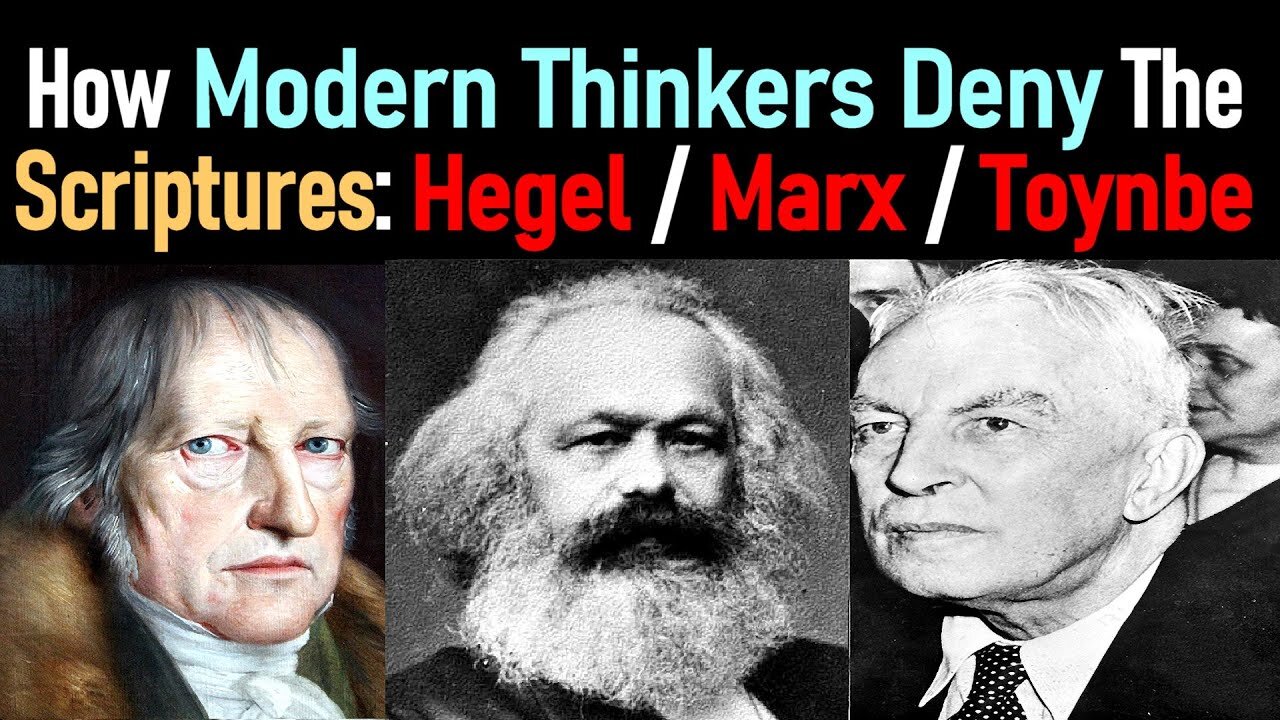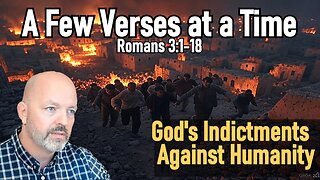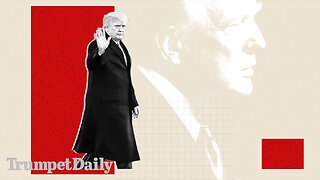Premium Only Content

How Modern Thinkers Deny the Scriptures: Hegel / Marx / Toynbe - Dr. C. Gregg Singer / Lecture
▶️TWITTER: https://twitter.com/RichMoo50267219
How Modern Thinkers Deny the Scriptures: Hegel / Marx / Toynbe - Dr. C. Gregg Singer / Lecture
▶️Battle for God and His Truth: http://battleforgodstruth.tumblr.com/
▶️My WordPress blog: https://sermonsandsongsdotorg.com/
Charles Gregg Singer was born in Philadelphia on June 3, 1910. His parents were Arthur Gregg and Edith Elizabeth Singer. He graduated magna cum laude from Haverford College in 1933 and received his Masters (1935) and Doctorate (1940) from the University of Pennsylvania. At one point during his years at the University, he served as chauffeur for Dr. J. Gresham Machen, when Machen was speaking on campus.
During World War II, Dr. Singer was the director of the War Manpower Commission in Illinois, and later was appointed to serve on the staff of the US Senate Commission investigating the attack on Pearl Harbor.
Dr. Singer was a highly skilled historian and an excellent teacher. His academic career included posts at Wheaton College, Salem College, the University of Pennsylvania, Belhaven College, Montreat-Anderson, Catawba College, Furman University, and the Atlanta School of Biblical Studies. He was also among the founding faculty at the Greenville Presbyterian Theological Seminary and he was teaching there at the time of his death, on March 22, 1999.
Dr. Singer knew the value of history for the Christian. The Christian faith is historically based, being particularly founded on the incarnation, life, death and resurrection of our Lord Jesus Christ, who is eternally the Second Person of the one Triune God. History matters, as it is the unveiling of God’s redemptive and providential plan.
John Calvin / Calvinism playlist: https://www.youtube.com/playlist?list=PL1D60D3A2D8DF224B
John Calvin - (1509-1564) French reformer and theologian
Born July 10, 1509 in Noyon, France, Jean Calvin was raised in a staunch Roman Catholic family. The local bishop employed Calvin's father as an administrator in the town's cathedral. The father, in turn, wanted John to become a priest. Because of close ties with the bishop and his noble family, John's playmates and classmates in Noyon (and later in Paris) were aristocratic and culturally influential in his early life
However, by 1527 Calvin had developed friendships with individuals who were reform-minded. These contacts set the stage for Calvin's eventual switch to the Reformed faith. Also, at this time Calvin's father advised him to study law rather than theology.
By 1528 Calvin moved to Orleans to study civil law. The following years found Calvin studying in various places and under various scholars, as he received a humanist education. By 1532 Calvin finished his law studies and also published his first book, a commentary on De Clementia by the Roman philosopher, Seneca. The following year Calvin fled Paris because of contacts with individuals who through lectures and writings opposed the Roman Catholic Church. It is thought that in 1533 Calvin experienced the sudden and unexpected conversion that he writes about in his foreword to his commentary on the Psalms.
For the next three years, Calvin lived in various places outside of France under various names. He studied on his own, preached, and began work on his first edition of the Institutes of the Christian Religion, an instant best seller. By 1536 Calvin had disengaged himself from the Roman Catholic Church and made plans to permanently leave France and go to Strasbourg. However, war had broken out between Francis I and Charles V, so Calvin decided to make a one-night detour to Geneva.
But Calvin's fame in Geneva preceded him. Farel, a local reformer, invited him to stay in Geneva and threatened him with God's anger if he did not. Thus began a long, difficult, yet ultimately fruitful relationship with that city. He began as a lecturer and preacher, but by 1538 was asked to leave because of theological conflicts. He went to Strasbourg until 1541. His stay there as a pastor to French refugees was so peaceful and happy that when in 1541 the Council of Geneva requested that he return to Geneva, he was emotionally torn. He wanted to stay in Strasbourg but felt a responsibility to return to Geneva. He did so and remained in Geneva until his death May 27, 1564. Those years were filled with lecturing, preaching, and the writing of commentaries, treatises, and various editions of the Institutes of the Christian Religion.
-
 21:28
21:28
Christian Sermons and Audio Books
13 days agoA Few Verses at a Time - Romans 3:1-18 - God's Indictments Against Humanity - Pastor Patrick Hines
2441 -
 20:47
20:47
MTNTOUGH Fitness Lab
21 hours agoDELAYED: Kyrgyzstan Ibex Hunt | A MTNTOUGH Original
15K -
 59:50
59:50
Trumpet Daily
20 hours ago $4.76 earnedThe End of the Trans-Atlantic Alliance - Trumpet Daily LIVE | Feb. 17, 2025
21.8K20 -
 52:05
52:05
PMG
12 hours ago $1.54 earnedWhat Does Freedom Cost? Steven Solomon's On-the-Ground Documentary in Ukraine
8.39K -
 2:38:54
2:38:54
TimcastIRL
12 hours agoElon Secret Child Scandal ERUPTS, Ashley St. Clair Story Goes Viral w/Bethany Mandel | Timcast IRL
194K122 -
 2:04:52
2:04:52
Kim Iversen
15 hours agoElon's Pumping Out Babies Like They're Tesla Model 3's | EU Panics Over Peace Talks, Wants More War
183K167 -
 1:05:35
1:05:35
Man in America
17 hours agoFort Knox & Trump’s Secret Gold Move—The Financial Reset NO ONE Is Ready For?
119K134 -
 2:21:20
2:21:20
Robert Gouveia
14 hours agoTrump Goes to SCOTUS! Judge CAVES on DOGE? Fani Willis Not Happy!
127K34 -
 20:41
20:41
Stephen Gardner
14 hours ago🔥You Won't BELIEVE What JUST Happened To Don Trump Jr.!!
145K227 -
 58:00
58:00
The StoneZONE with Roger Stone
12 hours agoEuropean Leaders Resist Trump Peace Overtures To Their Own Demise | The StoneZONE w/ Roger Stone
103K12